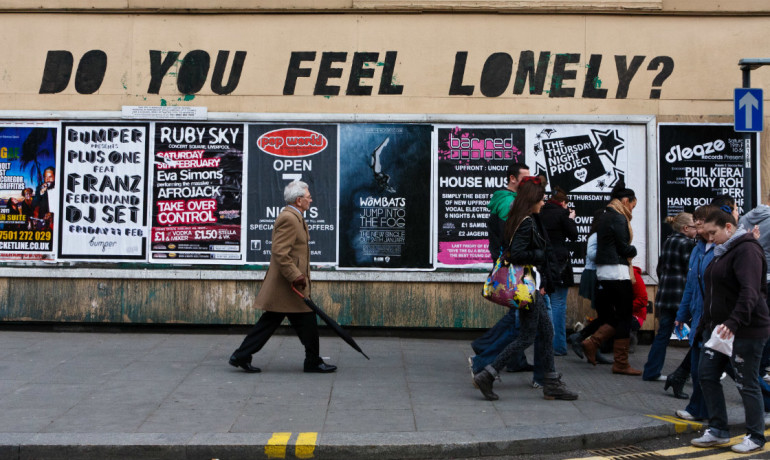The environmental case for youth mentoring
 Particularly in light of the recent climate news, we are delighted to re-post Colin Beavan’s compelling contribution to the Chronicle. Colin Beavan, PhD, is a writer, speaker, consultant, life coach, and activist. He is the author of the book No Impact Man and subject of the documentary by the same name. His work has been covered in countless publications from the New York Times to Le Monde and his numerous TV appearance include The Colbert Report, Good Morning American, and Nightline. Follow him at ColinBeavan.com, Facebook.com/ColinBeavan and @ColinBeavan. His most recent book, How to Be Alive, features mentoring as an environmental strategy.
Particularly in light of the recent climate news, we are delighted to re-post Colin Beavan’s compelling contribution to the Chronicle. Colin Beavan, PhD, is a writer, speaker, consultant, life coach, and activist. He is the author of the book No Impact Man and subject of the documentary by the same name. His work has been covered in countless publications from the New York Times to Le Monde and his numerous TV appearance include The Colbert Report, Good Morning American, and Nightline. Follow him at ColinBeavan.com, Facebook.com/ColinBeavan and @ColinBeavan. His most recent book, How to Be Alive, features mentoring as an environmental strategy.
Mentoring and the Environment
Here’s a question that may, at first glance, seem farfetched: Is it possible that by helping each other raise our children, by mentoring and co-parenting, we could actually be helping to save the planet from environmental degradation?
First think on this: As we evolved, human beings never had sharp teeth to kill or fast legs to run or turtle-like shells to protect us. The only thing we had in our favor, the thing that made us excel as a species, was our ability to cooperate. We work together in amazingly complex groups to achieve things. It is for negotiating these complex social interactions that our large brains evolved. But because our brains are so large and complex, they are not fully formed when we are born. As a result, our young take an especially long time to mature and look after themselves. One or two adults can’t manage the long-term task of raising a child alone. That is why one of the things we evolved to do in groups was raise our children.To reinforce this function, evolution gave each of us a biological need to nurture, and not just our own kids.
Next: Twenty percent of Americans at any one time report suffering from loneliness. Besides for being uncomfortable, loneliness is a predictor of degraded health. It is associated with everything from depression to early death. That’s because chronic loneliness is a stressor. In evolutionary terms, loneliness is an adaptive response that causes us to return to our group, where we are safe. Even in modern culture, we don’t function well alone. Those big brains don’t serve us unless we are using them to cooperate. Loneliness, the neuroscientists say, is actually an evolutionarily adaptive response to force us not to run off and hog food by ourselves, but to return to the group and share, because maintaining the well-being of the group is actually the best strategy for maintaining our own long-term well-being. The problem is, many of us don’t actually have a group to return to.
Finally: Hyper-consumerism, one of the elements contributing to our planetary degradation, is clearly driven by many institutional and cultural forces. But amongst them, according to consumer theorists, is the principle of sublimation. When we can’t get an emotional need met directly, we try to gain satisfaction in round about ways. Hence, some of us eat when we are sad, drink when we are frustrated or—yes—go shopping when we are lonely. The advertisers, anyway, count on this phenomenon. How many ads seem to suggest we will be more popular and have more friends—have a group to alleviate our loneliness—if we buy a certain product. Meanwhile: Some 18 million children in the United States are at risk from a lack of adult attention.
My questions is, what if those of us who went out shopping on a Saturday morning because we felt lonely instead addressed our need for connection directly? What if we helped to raise other people’s kids? What if, on the other hand, those of us who are struggling to raise our kids alone opened our lives to other adults? What if we made our families, made our groups where none existed before? Isn’t it just possible we might all find we had more meaningful, safer, satisfying lives while buying a little less junk? Isn’t it just possible that we would restructure our lives in ways where we didn’t feel we had to sublimate our needs by stressing the planet’s resources? Isn’t it possible, too, that we could solve our loneliness epidemic and solve loneliness related health problems by helping each other with kids? That’s why I think that maybe, just maybe, mentoring may actually be one element in saving our planet from complete degradation and humans from complete unhappiness. But even if I’m wrong, isn’t possible that most of us would feel, by helping each other, by using our brains for what they were designed for—social relatedness and helping each other get through this thing called life—that we would all just be a little happier? After all, that is what our brains are adapted to do.










